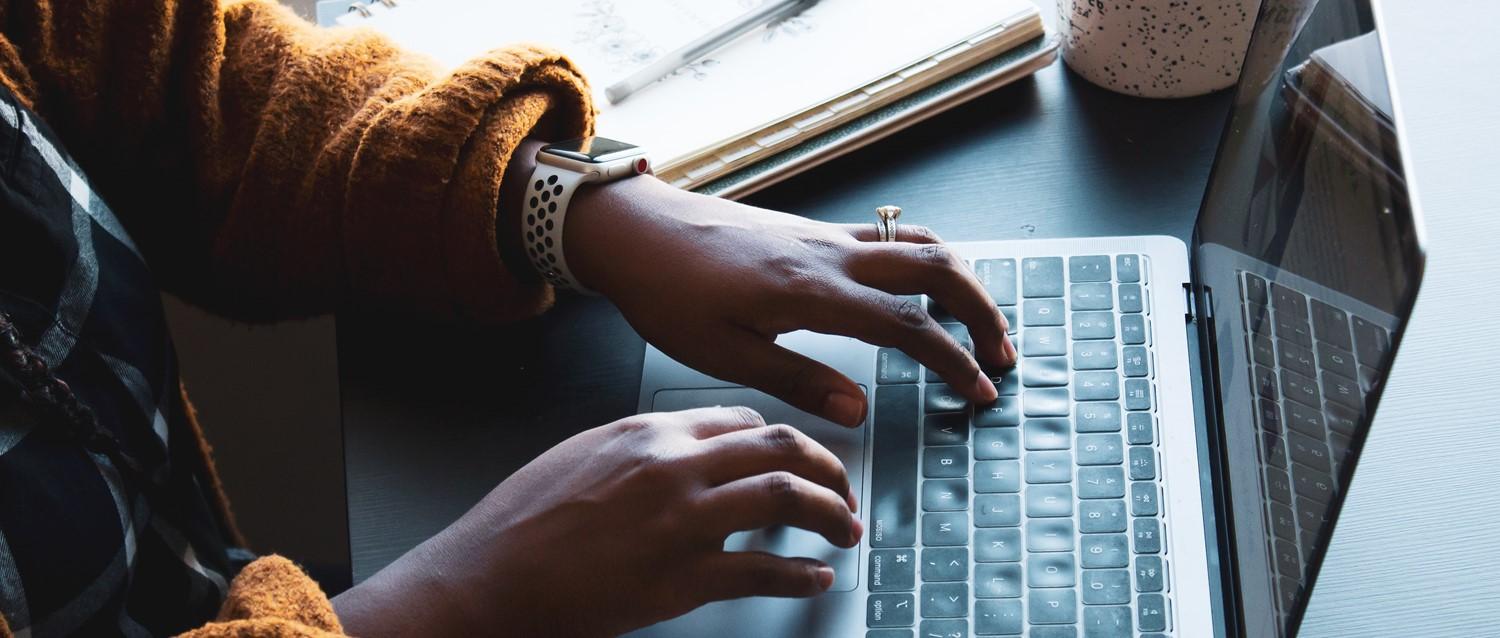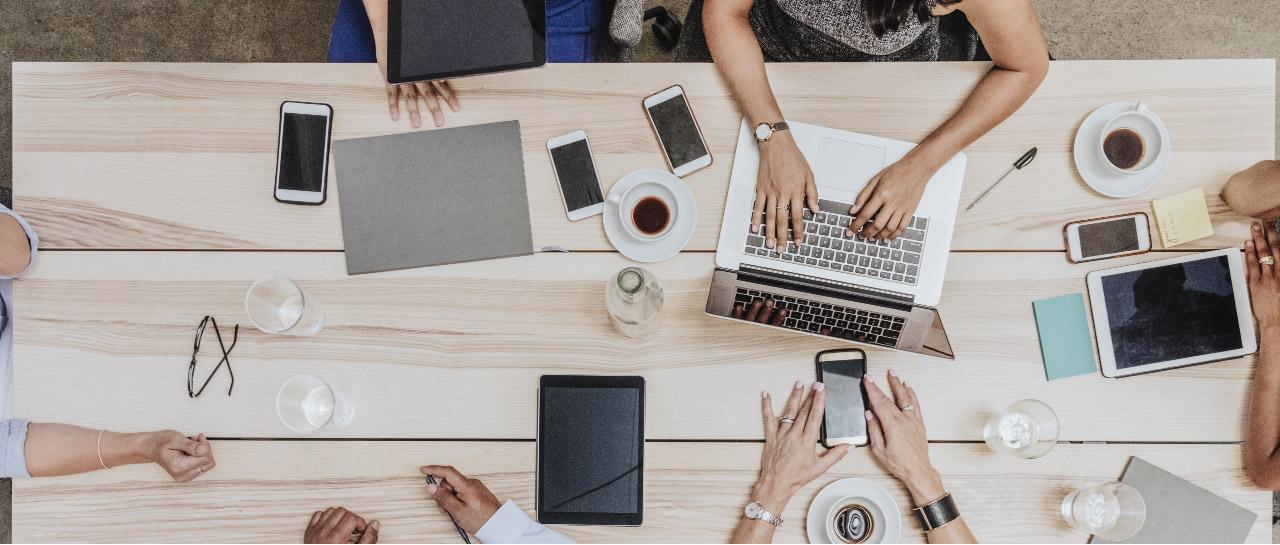
How to protect your mental health in the workplace as a Black woman
Peer reviewed by Dr Sarah Jarvis MBE, FRCGPLast updated by Emily Jane BashforthLast updated 19 Oct 2021
Meets Patient’s editorial guidelines
- DownloadDownload
- Share
- Language
- Discussion
34% of Black and minority ethnic women have experienced racist jokes and so-called banter at work, with 32% saying they have been bullied or harassed at work. 1 in 8 BME women also report being in insecure jobs compared to 1 in 18 white men. With Black women facing continuous struggles in the workplace, practising self-care and ensuring workplaces are safe are more important than ever.
In this article:
These statistics from the Trade Union Congress (TUC) highlight the progress yet to be made to ensure workplaces are inclusive and healthy for Black employees' well-being. Employees also need to know how to prioritise their mental health at home and where to turn for professional support.
Black women are more likely to be affected by job losses: this is a particular issue for Black women who face oppression across their multiple identities, such as disability, gender identity, sexual orientation, class, nationality, migration status, and faith. Systemic and structural inequalities also result in them being paid less.
Continue reading below
What struggles do Black women face in the workplace?
Aisha Gordon-Hiles BSc, MSc is a therapist who has both personal and professional experience of the challenges of being a Black woman in a working environment. She says being a Black woman in the workplace comes with struggles in two folds. The first being issues pertaining to being Black:
Microaggressions.
Racism.
Inequality in pay.
Pressure to perform.
The second being those pertaining to being a woman:
Misogyny.
Harassment.
Unequal pay.
Getting a seat at the table.
However, despite mentioning these issues in separate categories, Gordon-Hiles says most do not happen in isolation. By this, she means that a Black woman may struggle to get a seat at the table because she is a woman, but also because she is Black. Same with pay.
"Black women in the western world consistently feel pressure from the systems, processes, and expectations of others to prove their credibility, not to come across as the stereotypical 'angry black woman' and to look 'professional' as set out by unobtainable western beauty and societal standards. As a Black woman in the workplace, you are constantly aware of who you are, what you do, what you say, and what you look like," she says.
"The pressure to conform to white cultural expectations can leave Black women with a disorganised sense of self, constantly walking the tightrope between being authentically themselves and fitting into the culture at work, because their livelihood depends on it."
Why is it important for Black women to protect their mental health?
Gordon-Hiles says it is important for Black women to protect their mental health because they are already at a disadvantage mentally in this world.
"They already carry so much trauma and stress, so not making the conscious effort to look after their mental health can very quickly lead to burnout, depression, and a split sense of self. This in turn can lead to more severe mental health issues, such as psychosis," she adds.
Black people - women in particular - carry an enormous amount of trauma from direct and indirect racism, microaggressions, and abuse, as well as trauma that is passed down through generations.
Pressure from within the Black community for Black women to be 'strong' and display high levels of resilience is a lot to deal with daily, especially if someone is the significant breadwinner in their household.
Gordon-Hiles says that most black women grow up learning to take everything life throws at them on the chin, rather than learning the tools they need to cope with the challenges they encounter. Therefore, it is extremely important for Black women to practise tools to protect their mental health well-being, both at home and at work.
Continue reading below
What forms of self-care can Black women practise at home?
When thinking about self-care, Gordon-Hiles stresses the importance of looking after all aspects of the 'self', including mind, body and spirit.
Self-care for the mind
Attend virtual therapy (individual or group) with a Black therapist.
Read books about Black joy.
Burn incense, while practising mindfulness.
Write down thoughts and feelings in a journal.
Listen to enriching podcasts by other Black women.
Talk about how you feel with friends and family.
Self-care for the body
Plan meals in advance and batch cook.
Include a balance of fats, carbs, proteins and vegetables in all meals.
Take 5-10 minutes out each day to stretch or practise yoga.
Set an alarm to prepare for bed to allow maximum sleep.
Dance like nobody's watching.
Sing like no one is listening.
Hug your family.
Self-care for the spirit
Pray.
Practise affirmations.
Allow yourself time to scream and shout or express frustration.
Connect with nature, such as gardening or looking after a plant.
What can Black women do whilst at work to protect their mental well-being?
Gordon-Hiles highlights that the working world isn't going to change to become mentally and emotionally safe for Black women overnight, so it is important that Black women learn tools they can use to foster inner peace and healing while at work.
Protecting mental well-being at work
Report issues of racism.
Say no and set boundaries.
Give yourself permission to be you.
Doodle - this is great for briefly resting the mind and releasing stress.
Protecting physical well-being at work
Engage in or practise desk yoga/stretches.
Take regular five-minute breaks to move your body - this could be going to the bathroom or taking a walk around the building.
Drink plenty of water.
Stay connected with your breath.
Protecting spiritual well-being at work
Pray.
Use bathroom breaks as a time for affirming yourself in the mirror.
Connect with nature by having lunch outside.
Connect with other Black professionals.
Continue reading below
Where can Black women find professional support if they are struggling?
Gordon-Hiles shares that there are many organisations all over the world providing support specifically for Black women, through therapeutic spaces, podcasts, books, and more. It's also important to speak to your GP if changes in your mental health are concerning you or you need some extra guidance. If you feel comfortable, also talk to your employer or a trusted employee about how circumstances at work are affecting you.
Therapy and workshops
The Black, African and Asian Therapy Network - directory of Black and Asian counsellors/therapists nationwide with events and a resources list.
Nafsiyat Intercultural Therapy Centre - provides private therapy for London residents and free short-term intercultural therapy for some North London boroughs. Other languages are available.
Black Minds Matter - offers free short-term counselling for Black adults.
Zuri Therapy - offers free online racial wellness therapy workshops for Black British people.
The Mindfulness Network for People of Colour (MNPC) - a supportive network in the UK that aims to teach mindfulness and meditation to people of all colours, promoting and celebrating equality, diversity and inclusion.
Podcasts
What Would The Aunties Say? Navigating the world of ‘Brown girl problems’ with special guests each week.
The Gurls Talk podcast. Hosted by Adwoa Aboah and featuring different guests, as they talk, share, listen and take control of their lives.
Therapy for Black Girls, podcast in the USA for black women on mental health and personal development.
Books:
Soothe your nerves - the Black woman's guide to understanding and overcoming anxiety, panic and fear by Angela Neal-Barnett.
What the hell is life??? Helping you understand life and how to get the most out of it by Aisha Gordon-Hiles
The Unapologetic Guide to Black Mental Health: Navigate an Unequal System, Learn Tools for Emotional Wellness, and Get the Help You Deserve by Rheeda Walker.
Overcoming Everyday Racism, by Susan Cousins.
Patient picks for Workplace health

General health and lifestyle
How does IBS affect people at work?
Balancing work with irritable bowel syndrome (IBS) can pose great challenges, particularly as IBS is often linked to anxiety and stress. IBS symptoms can take a real toll on a person's physical and mental well-being, especially when they might require accommodations but feel too embarrassed to confide in colleagues or employers who don't understand.
by Emily Jane Bashforth

General health and lifestyle
Workplaces should help staff get fit to reduce sick days
Employers should do more to encourage staff to be more active during the working day, to tackle obesity levels and boost staff satisfaction, according to health officials.
by Natalie Healey
Article history
The information on this page is peer reviewed by qualified clinicians.
19 Oct 2021 | Latest version

Ask, share, connect.
Browse discussions, ask questions, and share experiences across hundreds of health topics.

Feeling unwell?
Assess your symptoms online for free
Sign up to the Patient newsletter
Your weekly dose of clear, trustworthy health advice - written to help you feel informed, confident and in control.
By subscribing you accept our Privacy Policy. You can unsubscribe at any time. We never sell your data.